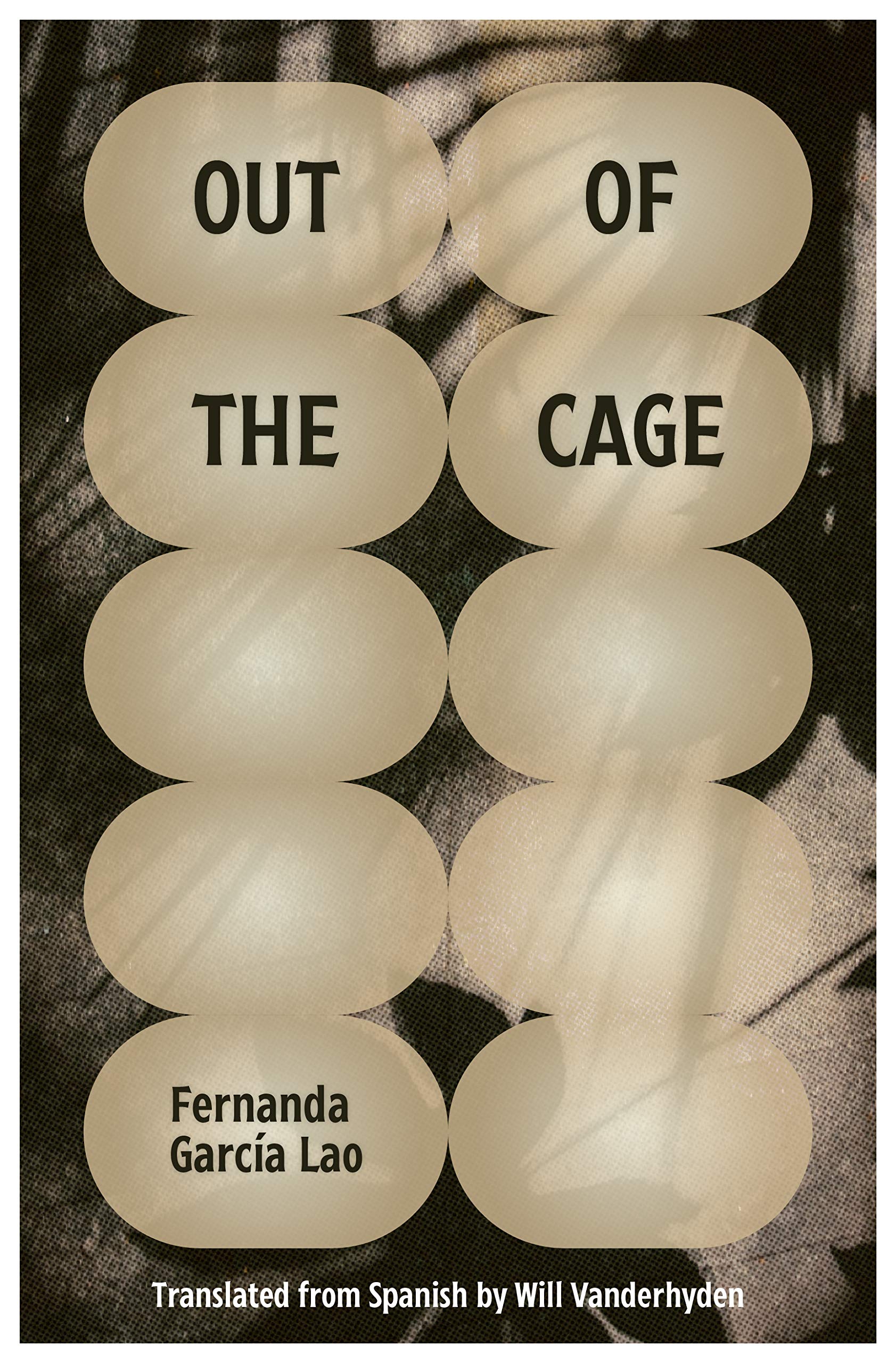Daniel Haeusser reviews short works of SFT that appear both online and in print. He is an Assistant Professor in the Biology Department at Canisius College, where he teaches microbiology and leads student research projects with bacteria and bacteriophage. He’s also an associate blogger with the American Society for Microbiology’s popular Small Things Considered. Daniel reads broadly in English and French, and his book reviews can be found at Reading1000Lives or Skiffy & Fanty. You can also connect with him on Goodreads or Twitter.

translated by Will Vanderhyden
Deep Vellum Press
March 2021
168 pages
One moment, Aurora Berro stands with her family, roaring out a patriotic song for the flag, amid a national holiday gathering in post-Juan Perón Argentina. The next moment, a vinyl disc flies past “like a demented boomerang”, severing the matriarch’s jugular and killing our protagonist instantly.
At first, no one notices. Not even Aurora.
Out of the Cage begins in 1956 with a series of chapters from the point of view of Aurora’s spirit, who remains hovering about her surviving family, observing and chronicling their continued quotidian existence while reflecting on the past. But, her family continues to barely register her absence.
There is her husband, the retired Colonel who only married Aurora due to her physical resemblance to Golden Hollywood Era actress Lana Turner. Even before Aurora’s death, the Colonel had mostly forgotten his wife, having transferred his attention and attraction to Lana, a sex automaton he created in the likeness of his infatuation. And there is ManFredo, the two-in-one conjoined twin children of Aurora and the Colonel. Their two personalities remain preoccupied with competition, grappling for control over their one singular body.
Blurbs from Deep Vellum Press dub García Lao “the strangest writer of Argentine literature.” The absurd plot and grotesque characters of Out of the Cage outlined above should reinforce this assertion. The plot proceeds in an almost dreamlike haze between worlds, yet in a succinct and unadorned language of simple sentences that leave no question to the reality of Aurora’s state and her family’s strange saga. The characters are not only ‘deformed’ in that side-show sense of genetic or developmental abnormality and artificial biology, but even more so in their behavior, their lack of empathy and their failure to fully sense the world around them – let alone Aurora’s spirit.
One gets the sense that Aurora was no different, until her unexpected, violent death. Freed from a body, “out of the cage” she is opened to new perspectives and senses, something beyond herself. Meanwhile, the Colonel and ManFredo remained trapped in the corporeal selfishness, obsessed over the physical form even over their own personalities and spirits: The Colonel’s erotic fascination with an image, recreated mechanically, without any real humanity. ManFredo’s desire to be able to separate into two bodies.
The first half of the novel set in 1956 from Aurora’s point of view ends and the novel pivots to 1975 in the form of a blackmail letter to the Colonel, written by Norma, a former prostitute whose one leg has been paralyzed by poliovirus infection. The bodily themes thus continue in this brief bridge between the previous era and the next half of the novel, set in 1989 from the point of view of one Severino.
Severino is the son of Norma, and his father might be Man… or Fredo… or perhaps the Colonel himself. With this second part of the novel García Lao explores the effects of the previous generation on Severino’s life. The absurdity of the first half largely goes away for a sort of mini study on how this young man deals with the absurdities of the past.
And here is where Out of the Cage finds its most easily relatable symbolism to Argentine politics. The time period of each section relates to specific political periods and transitions. Knowing little regarding Argentine politics or history myself, this gave the chance to do a little reading and education for context. But, while that context may enhance things, it is ultimately not essential to get the general emotions of the novel and its themes of body and spirit, personal and shared identities, freedom and restriction.
Out of the Cage is a grim tragicomedy, a family saga that parallels the absurdities of political upheavals. Related with a short crispness that makes the novel fly by even without much action, it contains a wealth of subtext for continued analysis and appreciation.
